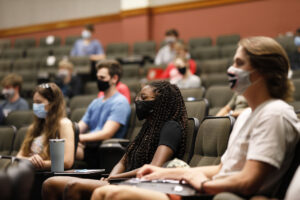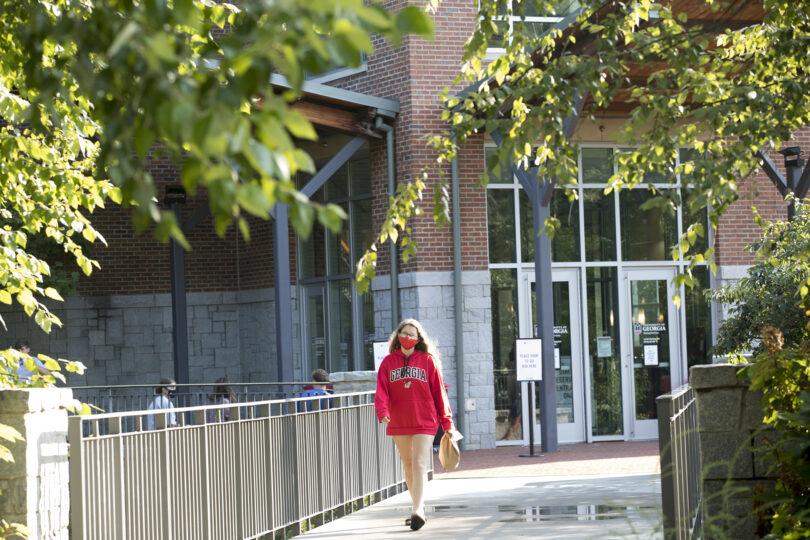Going away to college can be an exciting yet stressful time for first-year students and their parents. This year, the stress is amplified by the coronavirus pandemic, but many parents are happy to have their sons and daughters attending classes and living on campus at the University of Georgia.
And there are mental health benefits to reinforce the decision to send their kids to school, according to Arial Treankler, director of clinical services and a psychologist at the University Health Center’s division of Counseling and Psychiatric Services.
“Being back in a routine really helps decrease ambiguity,” said Treankler. “The educational environment offers structure and routine. Students have a schedule, and knowing what to anticipate day to day can be helpful.”
“Students gain so much from being physically in class,” said Brenda Herrera, whose nephew is a first-year student at UGA. “I truly appreciate the faculty and other employees for all their effort in making the changes and accommodations that have been needed this year. I have family members in the education field, and the additional work that has been necessary in order to cope with COVID-19 has been substantial.”
I was in Athens last week and was impressed with all of the students wearing masks and doing their best to follow the guidelines.” — Natalie Kempker
One aspect of the pandemic that has been particularly difficult for teenagers and young adults is being separated from their friends.
“I don’t think I realized how depressed my daughter was until I talked to her on the phone at school,” said Genia Hachenberg, whose daughter is a first-year student at UGA. “She sounded so content and happy to be surrounded by her friends again. It’s just not natural at that age to be shut away from people. High school seniors lost everything this year and their entire focus became college. My daughter was so worried when she heard about colleges going all virtual. She is so happy to be there.”

Students attend a class in Miller Learning Center on the first day of fall semester. (Photo by Andrew Davis Tucker/UGA)
Treankler said a person’s reaction to being alone depends on the individual. “Some people find it restorative and some don’t,” she said. “For this generation, a lot of their social life happens virtually. An individual conversation is helpful to get a gauge of how they are doing. We are able to have those one-on-one interactions with students [virtually] at UGA Counseling and Psychiatric Services.”
Responding to transitions is something Treankler said this age group grapples with, and COVID-19 has been full of transitions. “Even just returning to school or starting college is a transition, so to add the coronavirus to that is another layer.”
Natalie Kempker, a UGA alumna, is glad her first-year student was able to make the transition from home to school despite the pandemic. “I am so thankful that my daughter was able to move into her dorm and start classes at UGA. I was in Athens last week and was impressed with all of the students wearing masks and doing their best to follow the guidelines.”
Hachenberg has appreciated the frequent communication about all the efforts to make UGA as safe as possible for students. “You are all being really thorough,” she said. “I’ve been impressed by the comprehensive nature of UGA’s plan.”








